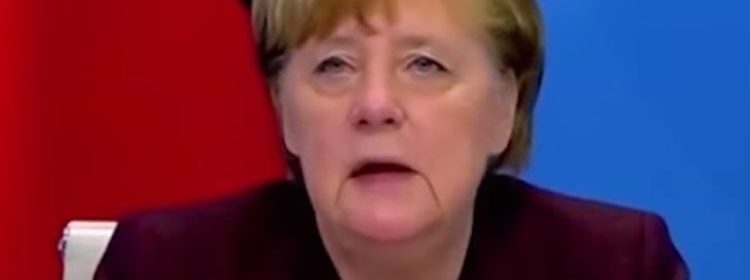EU unity crumbles as Macron hits Germany with harsh coronavirus border checks

Angela Merkel 'stuck to EU rules' on vaccine rollout says expert
When you subscribe we will use the information you provide to send you these newsletters.Sometimes they’ll include recommendations for other related newsletters or services we offer.Our Privacy Notice explains more about how we use your data, and your rights.You can unsubscribe at any time.
French President Emmanuel Macron said he would bring in new COVID-19 restrictions for the Moselle area at its border with Germany. Cross-border workers, who had exemptions until now, will need to present negative PCR tests to get through if travelling for reasons unrelated to their jobs, the ministers for European affairs and health said in a joint statement.
Working from home in the area will also be reinforced, they said. France and Germany have said they want to find ways to prevent a border closure while also controlling the virus.
Chancellor Angela Merkel told reporters after a virtual summit of EU leaders: “Border controls are not on the agenda at the moment.”
She added French and German authorities were working closely together.
The Moselle area in France, which border Germany and Luxembourg, has seen a surge in the variant of the coronavirus first detected in South Africa, prompting regional authorities to call for a local lockdown, which Paris has resisted imposing so far.
Joint France-German police patrols could be stepped up, the French ministries said, adding that vaccinations in the region were also being sped up and testing would be boosted.
According to the ministers, more than 60,000 tests were carried out on the French side last week. The quarantine period was increased from seven to 10 days.
In Lorraine, a Moselle department, an additional 30,000 vaccine doses were made available.
READ MORE: Barnier’s thinly-veiled attack on referendums exposed
The talks between the German and French officials also focused on aligning the test capacities.
France now tests twice as much as Germany and checks all positive PCR results for virus mutants.
This is not the case in Germany.
DON’T MISS:
Brexit LIVE: EU plots ‘major reset’ with UK – Frost prepares for talks [LIVE BLOG]
Netherlands trade fears as Dutch warned ‘Brexit is not good for us’ [INSIGHT]
Macron tried to freeze UK out of £350bn market [ANALYSIS]
Some on the German side, however, expressed surprise at the move, especially as a Franco-German task force had been set up to deal with the outbreak in the Moselle region.
A Saarland state government spokesman said a decision would be made on “reciprocal implementation” of the new French regulation.
He said: “There will probably now also be an obligation to test and provide proof for non-work-related entry into Germany.”
French EU affairs minister Clément Beaune said: “We do not take these measures with a good heart, we know the impact they have on daily life in Moselle, but they are aimed at preventing Germany from closing its border.
“We are looking for the most protective solutions and less penalising in a difficult health context.”
France has resisted imposing a new national lockdown to control more contagious variants, but has begun to toughen up restrictions locally in places such as Dunkirk in the north.
President Macron has consistently advocated for borders between EU countries to remain open during the pandemic, and clashed with Germany last year after Berlin precipitously closed the border during the first wave.
Some Germans are keen to leave options open. Thorsten Frei, deputy head of the conservative parliamentary group, told Reuters that restricting travel or introducing border controls would be a last resort.
He said: “But I cannot rule out the possibility that we will also have to resort to this means in regard to France.”
Additional reporting by Monika Pallenberg
Source: Read Full Article





